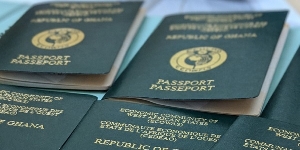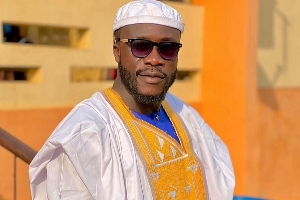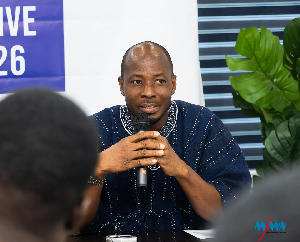Is the constitution of Ghana already calling for amendment?
In 1999, the ruling NDC mooted the idea of amending aspects of the constitution to favour the executive branch of state. The idea did not get far because it was seen as an attempt to tailor the constitution around the personality of the NDC leader. Now a respected jurist is also asking for an amendment but for different reasons. The following Ghana News Agency report provides the details.
A retired Supreme Court Judge, Mr Justice N.Y.B. Adade on Friday called for a new constitution to replace the 1992 one if its amendment would prove cumbersome and expensive. He said this would be necessary because "proposed alterations will be so many and varied that it will not be convenient to use the amendment procedures in Chapter 25", of the current Constitution.
"We may have to write a whole new Constitution, which I advocate, and promulgate it by such route as the people of Ghana, led by their Members of Parliament will see fit", Mr Justice Adade said.
He was delivering a lecture on: "Agenda for reform of the constitution some policy considerations" as part of activities marking the 19th anniversary of the murder of the three High Court Judges and a retired Army Officer on June 30, 1982.
The Ghana Bar Association (GBA) the organisers of the lecture termed the day the "Martyrs Day". The murdered judges were Mr Fred Poku Sarkodie, Justice Cecilia Koranteng-Addow amd Jusice Kwadwo Agyei Agyepong and a retired army officer, Major Sam Acquah.
Mr Justice Adade asked the Bar Association to lead in drafting the new constitution or cause amendment of the current one.
He cautioned that it would be a tragedy if the constitutional reforms were ignored by default because of the times as "we appear to be so engrossed with the economy and its impact on our pockets and our lives".
He said, "if it is agreed that the present Constitution requires some amendments as I believe we do, then in order that our electoral calendar as established since 1992 may not be disturbed, the amendments must be timed to be completed and to come into operation in good time by mid-2004."
He said, "if we miss this term, whatever amendments we make may have to wait till 2008 to be brought into operation". Mr Justice Adade, who was the Attorney-General and the Minister of Justice during the Busia regime of the Second Republic, said after the constitutional amendment proposal might have been taken through all the stages by early 2003, "Parliament may then be persuaded to present it to the Nation in June 2003 as our anniversary present when the event we are today memorialising shall be 21 years old."
He said the Constitution must be approved in time for use during the 2004 parliamentary and presidential elections. The timetable for inducting a new Government into office on January 7, 2004 need not be affected.
Mr Justice Adade said the current Constitution was divided into three groups for the purposes of amendments and that clauses in group (a) could not be amended, group (b) were the "entrenched clauses while group (c) were all the other clauses.
Following from that, sections 34, 35, and 37 of the Transitional Provisions belong to that group of provisions, which could not be amended under any circumstances.
He said those he had classified as groups b and c may be amended adding, "but as may be expected, the procedures for amending the two groups are not the same.
"Those for amending the entrenched clauses are so complicated and cumbersome including even a recourse to a referendum, that one wonders whether anyone may find it worth his while to attempt to initiate any steps towards interfering with any of them," Mr Justice Adade said. He said the procedure in amending the group c was also not simpler because it was also "implicated and irritating", except that it does not include a reference to a referendum.
Mr Justice Adade said bearing the foregone in mind, "the proposals I am inviting you to consider will require that we look elsewhere for implementation procedures." He later touched on the Council of State, Chiefs, the Judiciary, Lands, and the Presidential term as constitutional issues and made mention of two festivals-Homowo and Awubea of the Gas and Efutus, respectively, as they affect the rule of law.
General News of Monday, 2 July 2001
Source: Accra Mail












